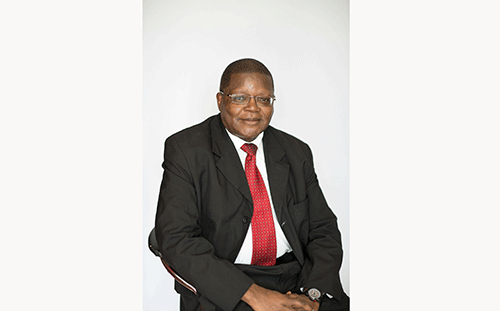In most higher education institutions, a Senior Common Room is a highly regarded and respected place which academics frequent for meals and socialisation. Do not mind the name ‘common room’, it is not a room for commoners or the hoi polloi.
In some universities, a Senior Common Room is run like a club with rules and regulations for its members. In order to maintain its dignity and prestige, members of the Senior Common Room have to subscribe to academic decorum.
One of the rules which some junior academics always questioned in the University of Zimbabwe’s Senior Common Room was the reservation of an opulent table solely for associate professors and full professors at the institution. Academics of ranks other than the two aforementioned ones were not allowed to be near the professors’ table, even if there was no one sitting at the table.
Junior lecturers wondered why this was like this, and intoxicated with the ideas of Karl Marx and Franz Fanon, they labelled professors as exhibiting bourgeoisie tendencies which were anachronistic with the values of independence after a gruelling bush war against the surrogates of imperialism. They did not see the logic for not using that special table when all the other tables were full, when sometimes it was empty.
People often argued with the waiters and waitresses who always cordoned off that area when professors were not in the common room, making it a small island of senior academics.
The seclusion of this table continued to irritate many academics, and some dared to confront the professors one day, leading to a heated argument. One of the outspoken professors silenced the complaining academics by saying: “You don’t qualify to sit at this table because you have not supervised a doctoral student, and you have not published academic papers. Please go and burn your PhDs, that is if you have them.”
From that day onwards, there never existed a problem concerning the professors’ table. The above scenario really happened. Its significance here is to show that sometimes academics need frank and straight talk to make them realise the importance of core activities of academia, especially postgraduate supervision and improving themselves academically.
There are many academics who hold doctoral degrees, but have not published a single article in peer-reviewed journals. Imam Moosa (2018) warns that “Academics who do not comply with the publish or perish stipulation perish, in the sense of not finding jobs or losing existing jobs. At best, the perish part is denial of promotion and the requirement of assuming a heavy teaching load while under the threat of termination.
However, publish or perish may mean different things, depending on the stage of an academic career.” Many such academics have accused their institutions of not promoting them, forgetting or choosing to forget that institutions cannot promote academics without quality publications. Others have not bothered to supervise doctoral students. It boggles the mind to see many PhD holders employed by higher education institutions who have no clue at all about producing or supervising doctoral students.
Yet, such academics always clamour
and scramble for positions when vacancies are advertised. If they are not considered for promotion, they take their institutions to task, playing the favouritism card.
In most higher education institutions in the world, the processes for assessing academics’ work for the sake of promotion are fair and free from manipulation. Research outputs, teaching and community service records are used in the assessment of academics for promotion. If the applicant satisfies all the requirements of promotion, there is little or no doubt that he or she will be promoted.
Experience and literature have proved that mainly due to laziness and ignorance, many academics do not engage in research and publication, which are the mainstay of a successful academic life. While it is true that heavy workloads may impede research and publication, the onus is on affected academics to negotiate with their supervisors, who in most cases understand the importance of research and publication. When it comes to the supervision of students, literature also reveals that successful doctoral supervisors put many hours and commitment in their students’ work.
They carefully map up the academic journey with their students, setting targets, monitoring and evaluating their students’ success regularly. Postgraduate supervision is of paramount importance for promotion to senior ranks within the university system. In fact, in prestigious universities, no academics are promoted to the ranks of associate and full professors if they have not supervised doctoral students. If you are an academic, and you are reading this article, take heed of this advice: publish or perish, simple.
The outspoken professor cited above used negative reinforcement to silence academics who were irked by the reservation of the professors’ table. The professors’ table had been created as an incentive to other academics so that they would aspire to work hard and be promoted to ranks that would qualify them to sit at the prestigious table. In order to reach University House at Melbourne University in Australia, you use a road named Professors’ Walk.
You walk or drive on the names of professors, past and present, in Professors’ Walk. In other universities, the common practice is to name buildings or wings of buildings after renowned professors. While the journey to professorship is arduous, this can be achieved. Once you possess your doctorate, you need to publish research articles in renowned refereed journals to become an associate professor, then you can be admitted at the professors’ table. The next stage is full professor, then distinguished professor and lastly professor emeritus. I hope by reading this article you have been inspired to work hard and apply for the next grade.



